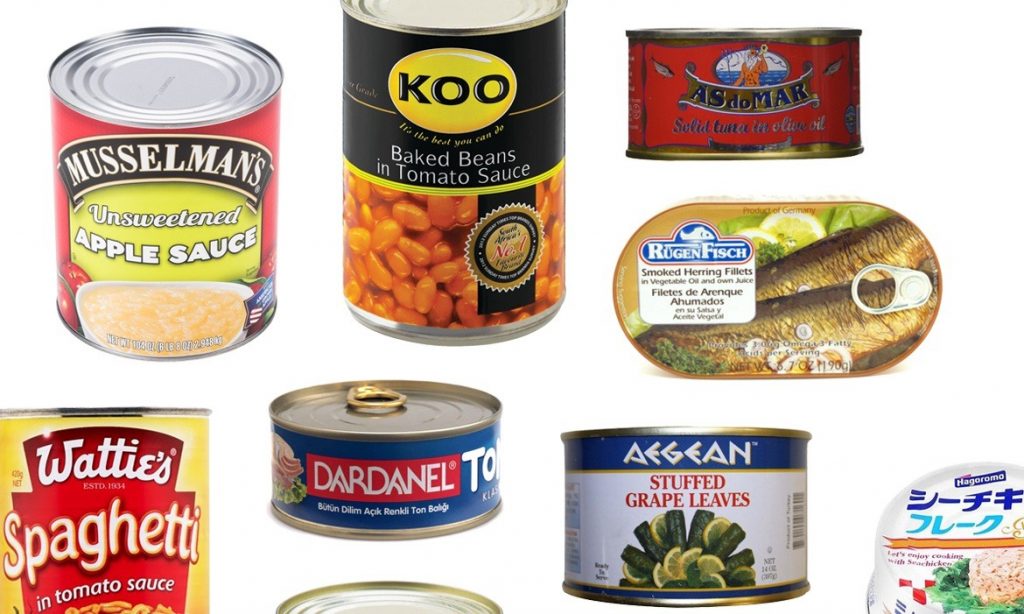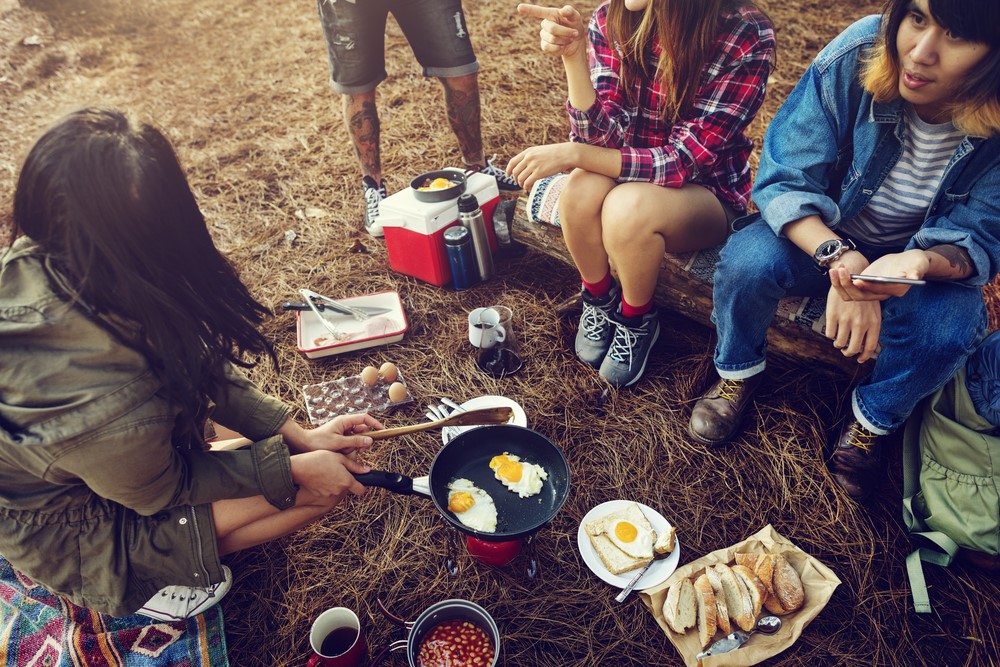What do you do when you are in desperate need of a break from all the craziness and stress of everyday life? Go on a hike, of course!
One of the things I enjoy doing during the weekends or holidays is to grab my ever-trusty backpack and my family, then enjoy the beauty of nature while hiking to a new (or even old) campsite where we will spend a night or two, just relaxing and bonding with each other.
But what I don’t like doing is carrying a heavy backpack with a portable stove to cook our meals. That’s why I decided to take no-cook backpacking meals with me instead while on a hike. Not getting super tired from carrying a heavy backpack gives me the chance to enjoy nature and my family.
With a little pre-planning before the trip, no-cook meals are really simple. Here is a list of some of the things I like to pack.
1. Tortilla Wraps – The New Sandwiches

Whole-wheat or corn tortilla wraps can successfully help you reach your daily recommended intake of grains. They are high in fibre and essential minerals such as phosphorus, copper and manganese.
Wraps may be a bit high in calories, but these are calories you need during a hike, making it perfect for backpacking. You can fill your wrap with a food you enjoy that doesn’t need cooking, like canned tuna, cheese, hummus, and veggies, or even make delicious peanut butter, jelly, and banana wrap!
My PB&J wrap is a favourite of my two boys!
Wraps are also a lot thinner than sandwiches so if you pack it just right, you may even be able to save a tiny bit of extra space. So ditch the chunky sandwiches and fill your corn tortilla with a nourishing, protein-packed meal that will keep you energized throughout your hike.
2. Energy Bars – Grab and Go Energy
As we mentioned earlier, having a good amount of calories is important during a hike. Depending on your weight and the effort you give, plus a few other factors such as the load you are carrying, you can burn anywhere between 150 to 800 calories in just one hour.
Energy bars are a great way to replenish all those depleted calories and nutrients and give you a mood lift when you’re feeling tired because let’s face it; they’re really delicious.
There are so many different brands and types of energy bars to choose from that it would be almost impossible not to find something you like. You can even find energy bars that are made specifically for hiking such as Clif Bar. I make sure to pack a lot of this for my family.
Important Reminder: Remember that we need to respect nature – be sure to dispose of the wrappers from these energy bars (and all other trash) properly. If your trail or campsites don’t have disposal units, keep your trash with you until you can dispose of them properly!
3. Canned Food – Your Source of Protein

An easy and obvious way to do no-cook meals is to grab those cans of food from the grocery shelves! There are so many different canned foods you can buy that will give you the protein you need while you are out on the trail.
Protein is one of the main macronutrients of the body, and it is very important for hikers or backpackers to integrate loads of protein into their diet. Without enough protein in your system, your body will begin to break down muscle tissue to find the energy it needs – you don’t want that.
Bring as much canned meat as you can so you have enough protein. You can use the meats in your wraps, sandwiches if you choose to bring bread, or even salads if you are bringing vegetables along with you as well. Remember to pack enough for the duration of your trip.
Quick Tip: Leave the cans in your trashcan at home and repack them into zipper bags. That way, you save space, lighten your load, and leave unnecessary trash at home and away from nature!
4. Muesli – The Healthy Way to Snack
Muesli is another great source of nutrients that is light enough for you to pack. The best thing is that it is versatile; it can be eaten hot, cold, with milk, or without milk.Personally, I enjoy just munching on them dry, like a healthy version of chips. Muesli is a mix of rolled oats, nuts, sometimes seeds and dried fruits.
Muesli is healthier than most cereals because it has less sugar and additives. It is full of fiber and whole grains that can help you stay full for a longer period.
I like to bring muesli that I repack into zipper bags. Since it is so light, I can bring a lot of it, and this is usually what I will have for breakfast and what I will snack on throughout the day, along with some trail mix.
5. Trial Mix – An All-Time Favorite
Trail mix is to hiking as the ice cream is to summer!
For those of you who don’t know what this powerhouse camping snack is made of, it is generally a mixture of nuts, dried fruit, and sweets. Trail mix can even have grains such as pretzels, granolas, toasted oats, along with seeds like pumpkin or sunflower, and maybe even extra flavorings like cinnamon.
There are tons of premixed trail mix that you can find in the grocer, or you can go DIY and mix it yourself. It’s really easy to make, and you can add all your favorite snacks to it. I like my trail mix to have a lot of nuts, M&Ms, and dried berries.
Depending on what you put into your trail mix, it can be a healthy snack. Nuts, for example, are a great source of omega-3 fatty acids for your heart, fiber for your digestion, and Vitamin E to help detoxification
.Adding pumpkin seeds or sunflower seeds, for example, will add in other essential minerals such as magnesium and zinc, as well as selenium which helps with thyroid health.
6. Protein Shake – Power Powder
If you don’t like canned food or you don’t want to over-pack on meats, you can always consider bringing along some protein shakes with you for your source of protein.
Protein shakes start in powder form, which also makes it easy, lightweight, and compact to pack. All you need to do is to mix it with water, and you have a pretty decent meal-replacement or extra source of protein.
You need 1 gram to 1.5 grams of protein per 1lbs of body weight per day to help you during your hike. Eating that much protein can be difficult, especially if you have a low appetite or an unbalanced diet. Adding a protein shake will help you hit those goals and keep you from collapsing on the trail from hunger.
There are different types of protein shake sources – egg, casein, milk, when, soy, and more. Not all protein is created equally, and each one has it’s own different features and benefits. Casein protein, for example, is a slow-absorbing protein whereas whey protein is fast-absorbing.
I drink whey protein often as a supplement for my meals since I do not usually eat enough food with a high source of protein. I always make sure to bring a few scoops of whey protein along with me during backpacking trips. Not to mention, my boys enjoy it because protein powder comes in so many different flavours.
7. Dehydrated/Freeze-Dried Backpacking Meals – Ready to Eat Meals

Technically, these meals are no-cook, but you will at least need a source of boiling water.
The first thing you’ll need to do before deciding to bring these along is to find out if your camping ground has a source of boiling water. If it does have boiling water available, then you can buy the commercial freeze-dried meals or learn how to dehydrate your own.
I have tried this a couple of times, and I enjoyed learning how to dehydrate ingredients and experimenting with different recipes.
The simplest way to dehydrate food is to buy a food dehydrator. It is a bit pricey, but for an avid hiker or an outdoorsman, this is something worth the investment.

